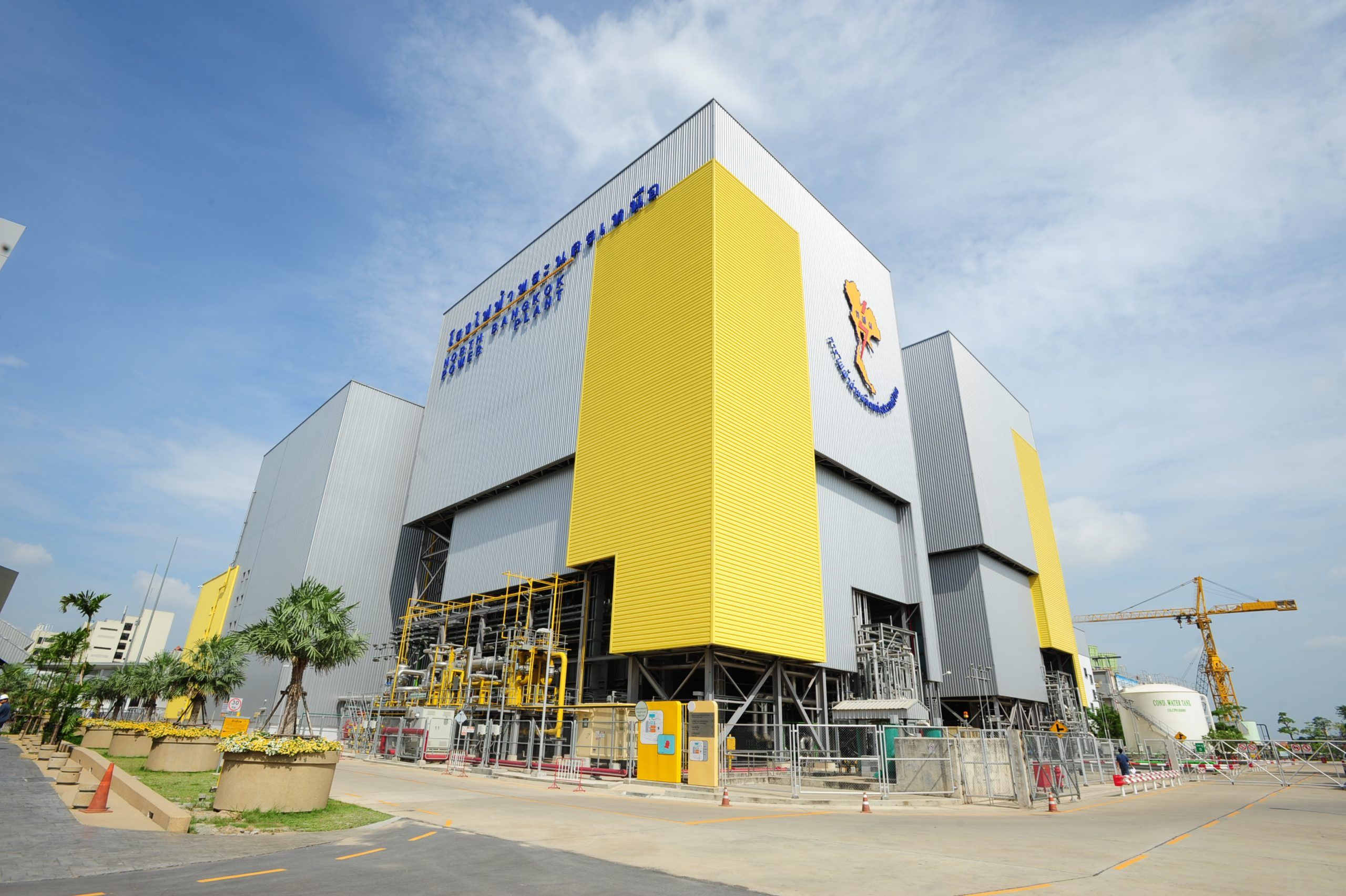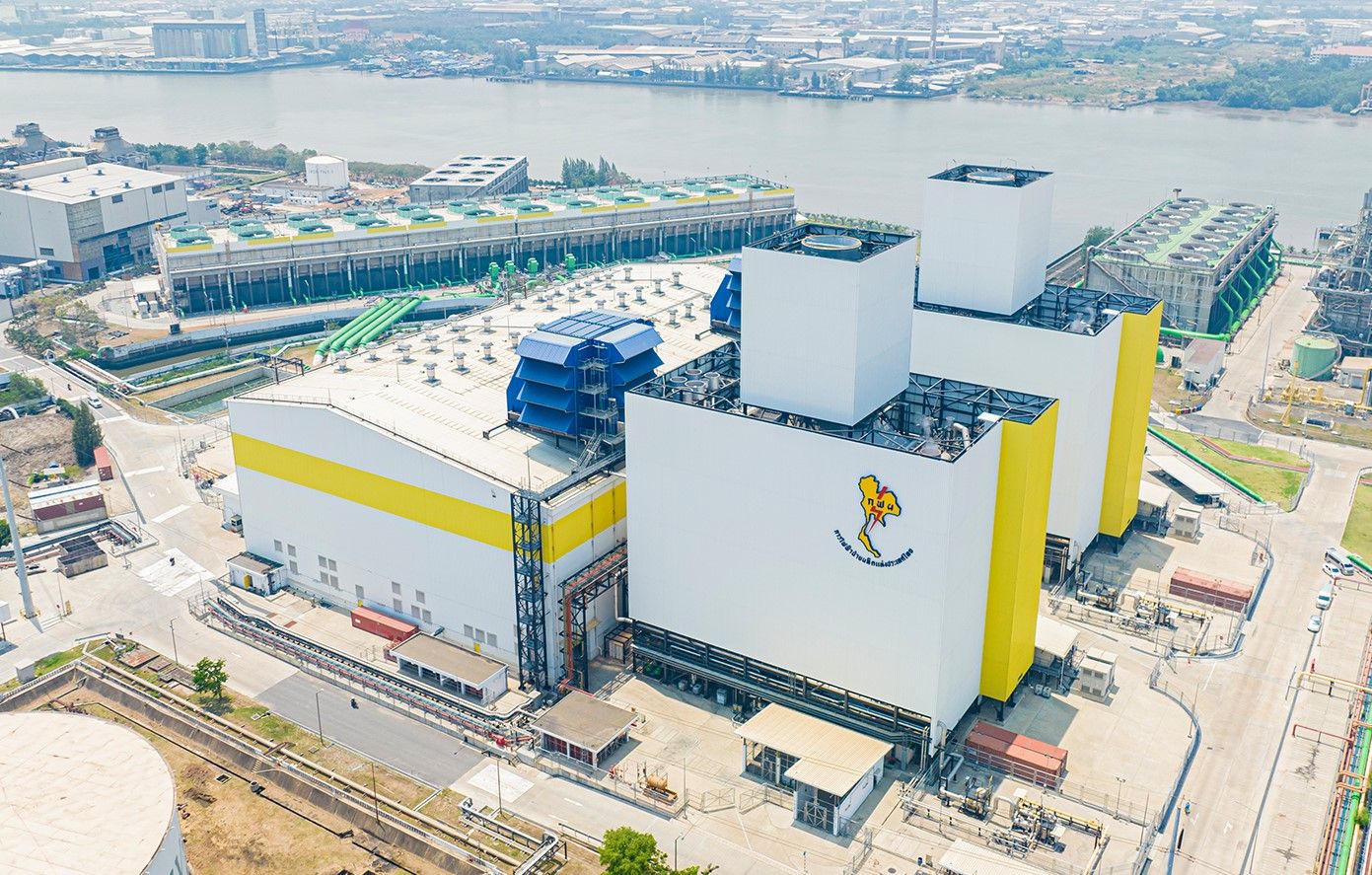Latest News
Subpage Hero

EGAT Prioritizes Social and Environmental Impact and Monitors Air Quality of Power Plants to Exceed Legal Standards
)
EGAT recognizes the importance of air quality management and reveals that it has controlled the emissions from its power plants to meet legal standards while collaborating with the community to alleviate the dust problem.
Mr. Thepparat Theppitak, Governor of the Electricity Generating Authority of Thailand (EGAT), revealed that the amount of PM2.5 in Thailand has accumulated beyond the standard and may impact the people's health. EGAT has continuously monitored the air quality from upstream of electricity generation by using high quality technology to control the combustion in power plants and reduce dust. The power plants utilize a nitrogen oxide emission control system (Dry Low NO x Burner) with water injection into the combustion chamber to control the combustion temperature and reduce the amount of nitrogen oxide produced. The power plants also have an Inlet Air Filter System to filter dust as well as a Continuous Emission Monitoring System installed at the power plant stack.

North Bangkok Power Plant

South Bangkok Power Plant

* Standard according to the Notification of Ministry of Industry (B.E. 2547) on the standards of contaminants released from power generation, transmission, and distribution facilities, and the Notification of Ministry of Natural Resource and Environment (B.E. 2566) on the air pollution control standards for power plants
** Control value specified in the environmental impact assessment reports of North Bangkok Power Plant and South Bangkok Power Plant
EGAT's combined cycle power plants, such as North Bangkok Power Plant and South Bangkok Power Plant, use natural gas which is regarded as a fuel that releases the least amount of emissions compared to other fossil fuels. Moreover, it has been found that all of EGAT's power plants are able to control the emissions exceeding the standard specified in the environmental impact assessment report, a value stricter than the standards of the Department of Industrial Works.
Additionally, EGAT is concerned about the PM2.5 crisis and has joined with Thailand Institute of Scientific and Technological Research to survey the air pollution and identify the sources of PM2.5 in the area around North Bangkok Power Plant.
Asst. Prof. Dr. Sudjit Karuchit, Lecturer at School of Environmental Engineering, Suranaree University of Technology and consultant for the research project, revealed that the dust from North Bangkok Power Plant does not contribute to the increasing dust level in the surrounding community as the DNA of the dust at the power plant stack differs from the dust in the community. Moreover, PM2.5 from North Bangkok Power Plant accounts for only 1.8% of PM2.5 found in a 5-km radius of North Bangkok Power Plant.
EGAT is also considering guidelines to help reduce dust in the area by increasing power plant stack temperature during some periods to remove dust from the atmosphere.
Furthermore, EGAT dams and power plants nationwide have measures to alleviate the dust problem, such as promoting the use of electric vehicles, installing over 1,250 real-time air quality sensors integrated with the Sensor for All application, as well as supporting forest fire prevention missions .
In Partnership with:
In Collaboration with:

)
)
)
)
)
)
)
)
)
)
)

